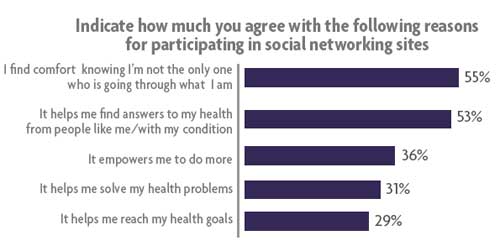Among Internet users looking for health information, product/health websites are as important as health care provider interaction, according to a new study from Epsilon.
Forty percent of online consumers use social media for health information (reading or posting content).
Individuals who use healthcare social media fall into two broad groups; the highly engaged patient who takes an active role in health management (80%) versus individuals who lack confidence to play an active role in their own health (20%). Social efforts must address these two audience types with very different needs.

Consumers engage with healthcare social media for both rational and emotional reasons. Emotional healthcare social media users want support from people who are going through a similar experience. Rational social media users are searching for information about their specific conditions and symptoms.
"Our research shows that social media is a valuable forum for patients to discuss their health issues and concerns while connecting with others facing similar circumstances," said Mark Miller, senior vice president, Epsilon Strategic & Analytic Consulting Group.
"This participation provides reassurance and intimacy, and many of the individuals who are highly engaged in social media feel better equipped to manage their health."
Many people have mixed feelings about how pharmaceutical companies should participate in websites and social media, but most are open to some level of participation as long as it is clearly disclosed.
Endorsements by government and non-profit organizations, such as the American Diabetes Association, the FDA and third-party watchdog groups adds credibility to social content.
